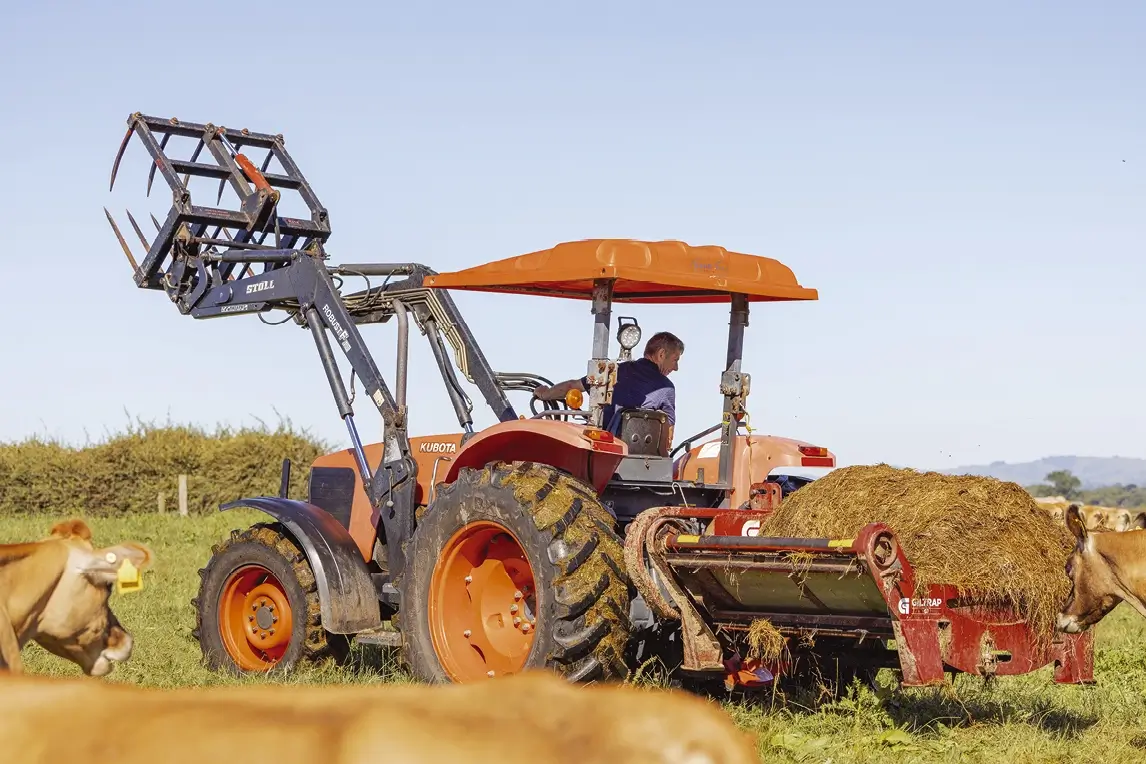Home » All Issues » Issue 4 » Able to Sustain a Better Future
Able to Sustain a Better Future
Lush, green pastures as far as the eye can see. Welcome to Matamata in New Zealand’s North Island. A popular tourist destination, Matamata is home to the Hobbit movie set, where the Lord of the Rings and Hobbit movies were filmed. According to locals Michael and Angela Roskam, who own Jerseyhill Farm, the rolling green hills, dotted with dairy cows, are the ‘cream of the country’.
“There’s nothing quite like the countryside out here,” claims Angela, “but I might be a bit biased. I was born and raised on these grounds, and so was my father. Now our children have been too. We are dairy farmers through and through.”
The Roskam’s modest 65-hectare dairy farm runs just over 230 head of cattle. This small operation enables Angela and Michael to tend closely to their animals. “Being a smaller farm, we have the ability to form a personal connection with each cow. Animal wellbeing is one of the most important focuses on our farm, and we have ended up with a few pet cows,” Angela laughs. “I know it sounds cheesy, but we like to work by the saying ‘Healthy, happy cows … and people’.” So much so that Michael always makes sure the cows are tended to before feeding himself.
“Milk is our main income. Our product is sent off to the Fonterra factory and made into a whole lot of different products.” Angela and Michael have been in charge of operations for more than a decade, after buying the land off Angela’s parents in 2012. According to Angela, it was the perfect move for their family. “It provided our kids with a fantastic space to explore, ride horses, raise cattle, build all their childhood memories. Just as it did for me. It’s really special when you think about it.”
For Michael and Angela, farming is in the blood. The couple met back in 1997 and instantly bonded over a mutual love of the land. “At the time I was training to become a teacher and working at a school,” Angela explains. “During the school break I would take on extra work dairy farming and milking cows.
“We were working long hours every day, side by side, and things just blossomed,” Angela reflects with a smile. “The connection was instant for me. Working and talking so closely every day, it was only a matter of time,” Michael echoes. A shared love of farming has enabled the Roskams to push the boundaries of traditional dairy farming and adopt more sustainable farming practices. Core to the operations at Jerseyhill Farm is sustainable environmental management.
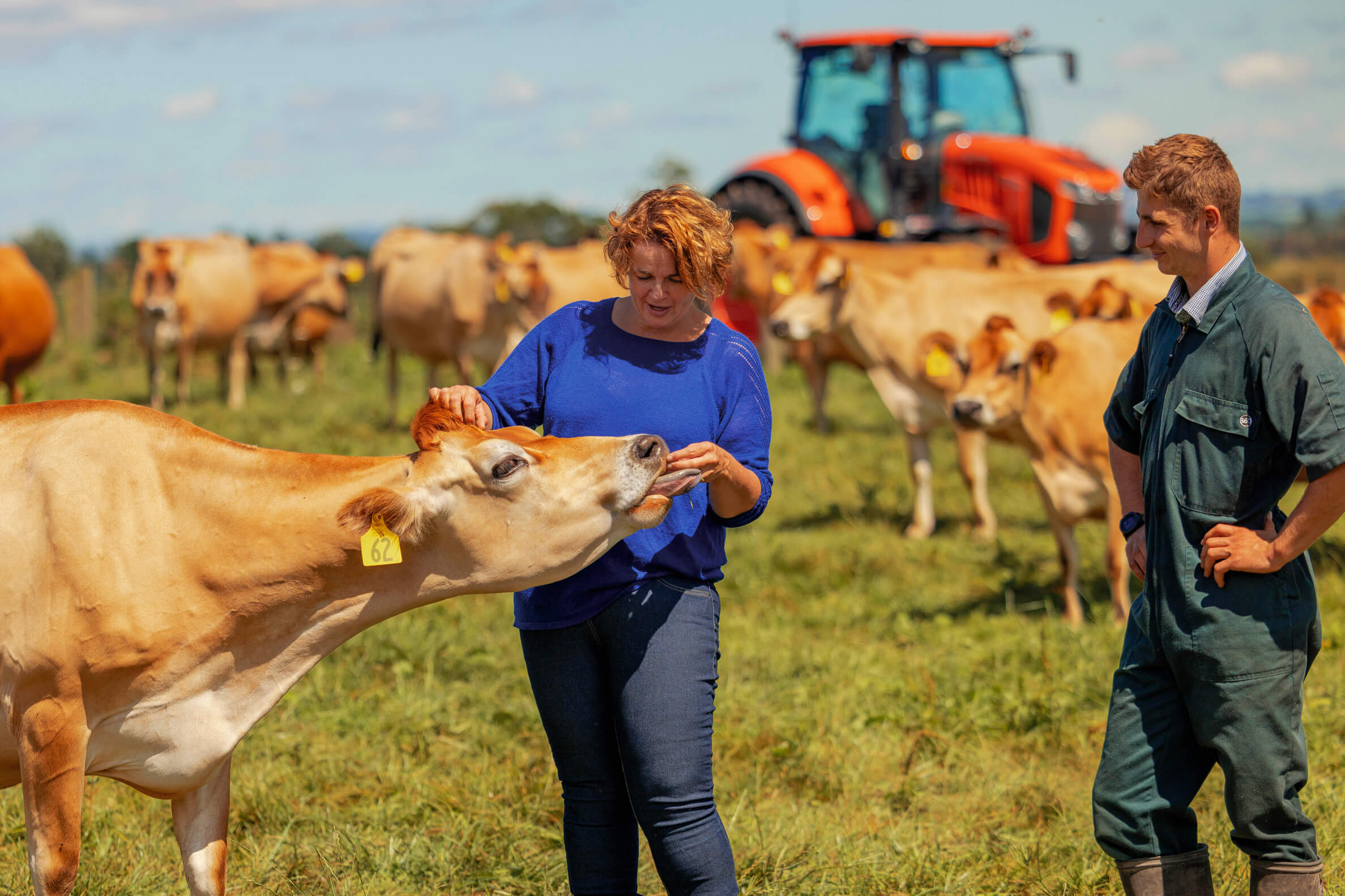
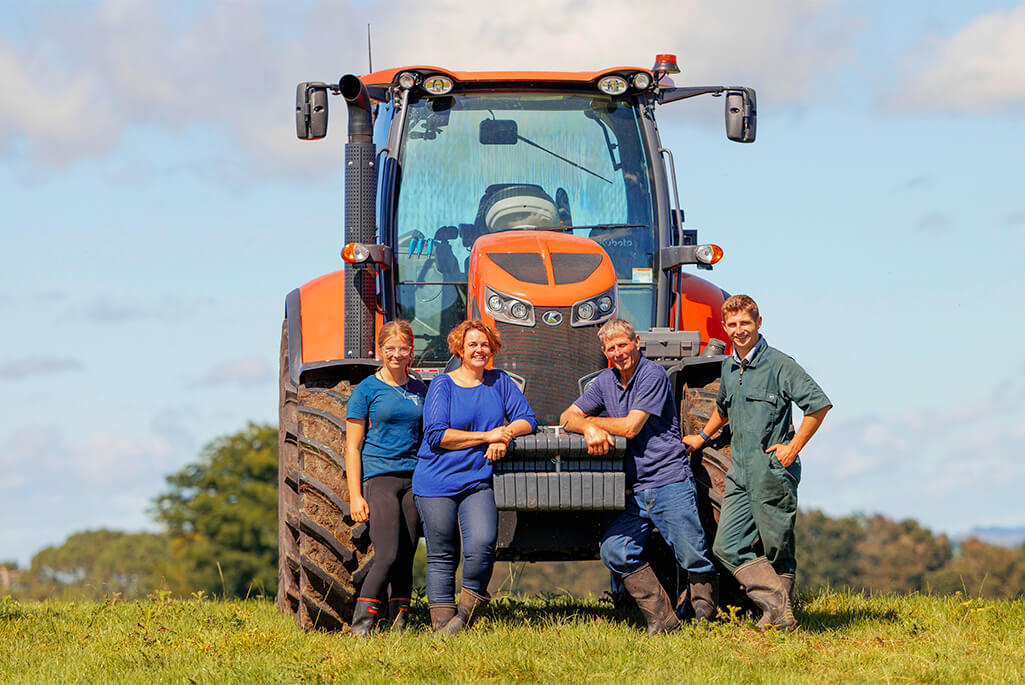
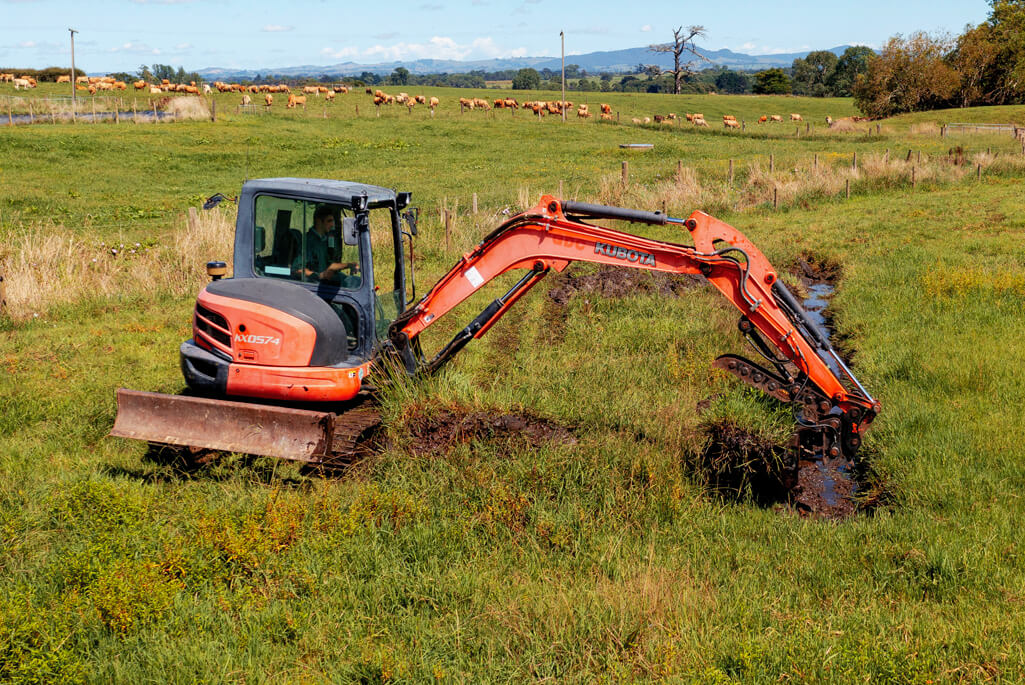
“Water and soil on our land is our biggest asset,” says Michael. “Water is recycled back onto the land via the effluent system, as it’s filled with nutrients. We don’t plant any crops but just rather focus on growing quality grass for the cows.”
With a drive to do better for the environment, Angela and one of her sons, Edward, have taken on further studies, researching the best ways to boost soil health with less nitrogen to further develop their farm environment and sustainability plans.
“We want to move away from conventional fertilisers and find what the plant and soil needs,” Michael explains. “This year we have moved to foliar spraying the nutrients, which involves applying fertiliser directly to the plant leaves rather than putting it into the soil. The plants can absorb fertiliser faster than conventional granular fertilisers.
“It also prevents leaching and volatilisation, which leads to loss of nutrients from the soil. This technique is more fitting with our sustainability goals. These little practice changes all add up and help to reduce our impact on the environment. We’d like to think we’re setting up the farm to be better for the next generation.”
"I WAS TOLD IT COULDN’T BE DONE... BUT IT CAN BE DONE"
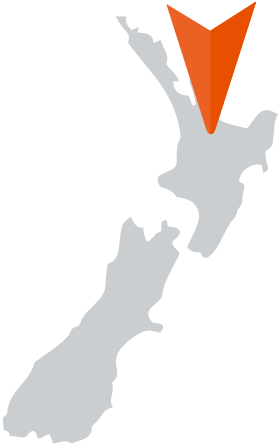
This appreciation for the environment and devotion to sustainable farming practices is something the Roskams have passed onto their three children – Patrick, 22, Edward, 20, and Victoria, 15. “The kids love being out on the farm, particularly Edward,” explains Angela. “The last few years were challenging for us, as Michael underwent seven major knee surgeries, leaving me to run most of the operations.
“I was so thankful Edward wanted to come home after a year away, and he took on a huge responsibility helping me to co-manage the farm.”
The skills developed on the farm at Jerseyhill saw Edward take out the DairyNZ Practical Skills Award at the 2022 New Zealand Dairy Industry Awards at the age of 19. “The award Edward won is a testament to his capabilities. He has the ability to manage farms much bigger than ours, so it brings us great joy that he’s chosen to continue his work alongside us,” Angela reflects.
“I hope to see him take over the farm in the next 10 years, so Michael and I can take a step back from the operations, just as we took over from my parents.” Until then, Angela and Michael Roskam still have plenty to give. To help keep their on-farm operations smooth and efficient, the couple rely on the best machinery in the business.
“We’ve had a long history with Kubota,” says Angela. “We purchased our first tractor in 2008, and we’ve never looked back. The reliability the products offer for the price is outstanding.” The couple have a range of machines, including a M105S tractor, M7-152 Deluxe tractor, KX057 excavator and a RTV-X900, which each play their own role on the property.
“Of course, the M7 we utilise for the bigger jobs,” explains Angela, “like mowing and baling silage on our support block and fertiliser spreading. We bought the RTV-X900 just after Michael’s surgery, and it’s been an absolute lifesaver. “It helps him move the cattle between paddocks, and he can just jump on and off much more easily.” When it’s time to upgrade their equipment, the Roskam’s turn to dealer network Agrilife.
“Agrilife is the dealer we trust regardless of the location. We’re old school, and great customer service is what we care about the most. We love them because of the after-sales service. It’s not just about the money for them, they really care for their customers.”
Angela and Mike strive to uphold the great work dairy farmers do every day across New Zealand. “We should all be proud to be in this industry. We work hard and provide families with food to put on the table. It’s an amazing opportunity and lifestyle for all of us.”
